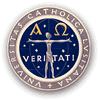
Master 3D modeling for film and video games in under 2 years with CG Spectrum. Get personalized career training online from leading 3D artists from major studios, plus career support and access to a vibrant community. Learn more.

| Ranking | School | City |
|---|---|---|
| 1 | Universidade Lusófona | Lisbon |
| 2 | Faculty of Design, Technology, and Communication | Lisbon |
| 3 | Catholic University of Portugal | Lisbon |
For this ranking we only consider formal degree programs (bachelor's degree or equivalent). For an explanation of our ranking criteria, click here.

The Cinema and Media Arts Department at Universidade Lusófona has two paths to study animation: the Bachelor in Digital Animation and the Masters in Animation Arts. The Digital Animation Bachelor features courses taught by professional animators; a multidisciplinary curriculum; 24/7 access to animation classrooms, a motion capture lab, and audiovisual and multimedia production facilities dedicated to animation; tutors; and an international course provided in partnership with CILECT (the International Association of Film and Television) and Re:Anima (Erasmus Mundus Joint Master Degree (EMJMD).
Students in this program will master 3D digital animation techniques, stop motion, virtual and augmented reality (VR/AR), cartooning techniques, and motion capture. Course examples include Animation I-II; Stop-Motion Animation; Narrative Language in Film and Animation; History of Animation Film; Digital Animation; Cartoon (Animated Drawing); Sound Effects Workshop; 3D Animation; Character Design I-II; Motion Capture; 3D Character Animation I-II; Animation Direction Workshop I-II; Visual Effects; and Project Seminar and Professional Integration.
The Bachelor in Digital Animation at Universidade Lusófona culminates with the completion of a major animated production and presentation. Graduates of the program are prepared for professional opportunities in animation, VFX, and digital illustration, or admission to the Masters in Animation Arts. This program focuses on producing and directing animated films, experimentation, and related fields such as video mapping and art installation.
Course examples include Digital Animation; Movement and Drawing; Stop Motion Animation; Script Techniques; Author Animation; Hybrid Spaces; Animated Documentary; Visual Culture I-II, and Production. In the final year of the program, students will complete a professional internship, final project, and presentation. Graduates are prepared to pursue leadership roles in filming and production of animated cinema, VR/AR, art installation, animation research, video mapping, and art education.
Universidade Lusófona began in 1998 with the merger of ISMAG – Higher Institute of Applied Mathematics and Management, and the polytechnic institute ISHT - Higher Institute of Humanities and Technologies. Both schools were founded in 1989. Today, Universidade Lusófona serves more than 16,900 students, making it the largest private university on Portugal.
With a teaching staff of approximately 1,670, the school provides 65 bachelor’s, 84 masters, one EAD, and 13 PhD programs across two campuses that house 15 faculties, schools, and institutes. Universidade Lusófona Is accredited by the Agency for Assessment and Accreditation of Higher Education (A3ES).

Faculty of Design, Technology, and Communication (IADE) houses one of Portugal’s first Animation and Visual Creation degree programs. Leading to a bachelor’s degree, the program requires 180 units completed over three years. The school also launched a Digital Game Development doctorate program in 2022, making it the very first the first doctorate of its kind in the Iberian Peninsula.
Students in all IADE programs benefit from more than 180 international partnerships with institutions such as NewSchool of Architecture and Design (San Diego, California, USA), Nuova Accademia di Belle Arti (Milan, Italy), Elisava Barcelona School of Design and Engineering (Barcelona, Spain), Abertay University (Dundee, Scotland); access to state-of-the-art labs and studios such as the 3D Laboratory, Media Lab Studio, Digital Laboratory, User Experience (UX) Lab, Photography and Video Laboratory, Technology Laboratory, and Print Lab; and opportunities to complete a professional internship
The Animation and Visual Creation program at IADE is a project-based program that focuses on 2D and 3D animation techniques, stop motion, concept art, digital painting, character development, and storyboarding. Course examples for the program include Visual Culture and Contemporary Media; 2D Animation Lab; Semiotics and Visual Rhetoric; Concept Art and Digital Illustration Workshop; 3D Modeling and Character Design Workshop; Art Direction; Animation and Visual Creation Studio I-II; Direction and Production; Digital Aesthetics; Integrated Animation Lab; and 3D Animation Lab.
In the final semester of the IADE Animation and Visual Creation program, students will learn about the business side of creative industries, prepare their final projects, and build a professional portfolio. Specific course titles include Creativity and Innovation in Creative Industries; Project Management and Pipelining; and Portfolio and Showreel Design.
Faculty of Design, Technology, and Communication graduates enjoy an 87% employment rate in the global creative sector. Animation and Visual Creation are prepared to pursue roles such as 2D or 3D Animator (film and games), Storyboard Artist, Motion Designer, Concept Artist, Creative Director, and Video Editor.
Faculty of Design, Technology, and Communication has been around since the late 1960s. The school serves thousands of students enrolled in design, arts, communication, marketing, advertising, photography, and technology programs leading to an undergraduate or advanced degree. Some advanced degree programs at IADE, such as specialized doctorates, are led by renowned industry professionals. Other programs are led by entrepreneurs, educators, and researchers.

Catholic University of Portugal (UCP) is home to the interdisciplinary School of Arts. Within the school are degree programs in the arts, science, and technology. Students in all programs here benefit from partnerships with cultural institutions; frequent guest lecturers; access to state-of-the-art production facilities and labs; field trips; and possible participation in film festivals such as Fantasporto, Curtas Vilas do Conde, and the Santa Ana International Film Festival.
For students seeking careers in animation, the UCP School of Arts has a Sound and Image master’s with a specialization in Animation. Program features include courses taught by industry professionals; 24/7 access to all studios and facilities; the option to join CITAR or CCD research teams; individual video editing studios; and a minimum 24-week internship at places such as Garage Films, Solid Media, Pix Mix, Utopia Filmes, Cimbalino, and Gema Interactive.
The Sound and Image master’s program helps students develop skills in animation, modeling, and digital sculpture; narrative and scriptwriting for animation; and visual effects (VFX). Course examples include Animation Theory; Animation Techniques; Visual Narratives and Intermediality; Modeling and Digital Sculpture; Animation Theory; Script and Storyboarding; Sound and Image Research; and Interdisciplinary Seminar. Students will complete a number of projects across courses such as Animation Project I-II, and Interdisciplinary Project.
In the final year of the Sound and Image (Animation) master’s program, students will complete the Portfolio/Showreel and Dissertation/Final Project courses. Graduates are prepared to pursue leadership roles in the entertainment and other creative industries.
Catholic University of Portugal was established in October 13, 1967 by decree of the Holy See (Lusitanorum Nobilissima Gens), at the request of the Portuguese Bishops' conference and under Concordat Law. Today, the school serves more than 12,000 students enrolled in 13 undergraduate, 18 masters, and four PhD programs across four campuses in Lisbon, Porto, Braga, and Viseu. All programs at the Catholic University of Portugal are recognized by the Agency for Assessment and Accreditation of Higher Education (A3ES).